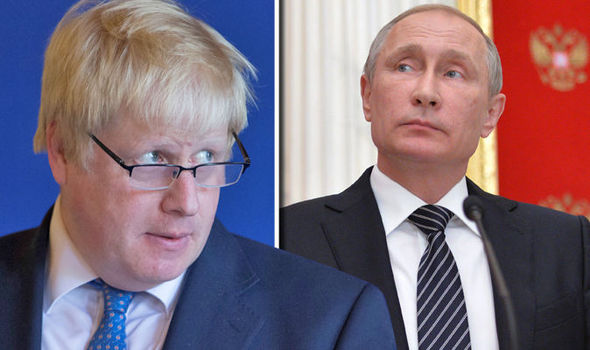The quiet cathedral city, Salisbury, in the UK, has been thrust into global headlines as the latest incident of state terrorism has taken place on British soil. The poisoning of former Russian spy Sergey Skripal and his daughter Yulia has exacerbated the already tense relationship between the UK and Russia. British Prime Minister Theresa May threatened ‘extensive’ retaliation against Russia who she blamed for the attack, she said “We will not tolerate such a brazen attempt to murder innocent civilians on our soil, should there be no credible response, we will conclude that this action amounts to an unlawful use of force by the Russian state against the United Kingdom.” But in reality, there is little Britain can do to hurt Russia, despite its rhetoric.
Comment:
During the Cold War, Britain was in the western Capitalist camp against the Communist Eastern bloc. Espionage, nuclear weapons, submarine warfare defined relations between both countries.
Relations improved with Russia after the collapse of the Soviet Union. But when Vladimir Putin came to power in the early 2000s and Russia began to regain political influence, relations between Moscow and London became tense again. A number of former KGB agents and oligarchs fell foul of the Kremlin as Putin consolidated power, they believed the heyday of the KGB was over and viewed the Putin era as another passing moment in Russia’s long and turbulent history. The Kremlin picked off the oligarchs one after another, after giving them ultimatums to stay out of politics. Putin had by 2003 consolidated his government and was edging the oligarchs as a class out of Russian politics.
Britain became a refuge for political targets from Russia. Vladimir Gusinsky (MediaMost) and Boris Berezovsky both escaped Russia to London. Other oligarchs such as Roman Abramovich remained in the Kremlin’s favour as they kept out of politics. A number of former KGB agents who were seen as undesirables, who criticised the Kremlin were given refuge in the UK. Sergei Skripal, who we now know died from poisoning, was a former officer from Russia’s GRU military intelligence agency, who in 1995 began secretly working for MI6. He was arrested in 2004, convicted of treason and sent to a penal colony. In 2010, Skripal got out, less than halfway through his 13-year sentence. The FBI had captured a group of Russian sleeper agents in the US. In a scene from the Cold War, Skripal was swapped on the tarmac of Vienna airport. The sleepers went home to Moscow. Skripal’s destination was Salisbury, England.
Skripal’s treachery decades ago was deemed serious enough to warrant his death today. Russia had him in 2006, but did not execute him. Thirteen years is a paltry sentence for espionage deemed serious enough to merit assassination many years later. Because of this, the poisoning of Skiripal is for reason other than treason.
Opponents of the Kremlin in Russia and abroad home and abroad have consistently died. Many of these operations, including the murders of journalist Anna Politkovskaya and former FSB officer Litvinenko, were deliberately bold. The use of a rare radioactive isotope (polonium-210) in the Litvinenko murder was like leaving a calling card at the scene of a crime. There are far more subtle ways to kill someone, and Russia frequently employs such methods. Due to the elaborate means used, it’s not hard to conclude that the Kremlin wanted to make it clear that it was responsible for killing Litvinenko. Likewise, the use of a rare nerve agent in the Skripal attack was intentional — and another example of the Russians leaving a “calling card.”
Russia continues this exchange with the West, it wants to remind its intelligence officers that betraying the Kremlin is treacherous. And even if personnel make it out of Russia, Western intelligence agencies cannot protect them. The long arm of Russian intelligence will reach out and kill them — and their families.
Britain has been more than happy taking the dirty and illicit money of the oligarchs. They have financed mega projects, bright up key real estate and donated millions to the political parties. Russia’s message is giving safe havens to Russia undesirables will lead to more attacks. Britain now needs to decide of Russia’s dirty money is more valuable than dead former KGP agents on its streets.
Adnan Khan


Interesting the author accepts the Tory position despite no real evidence for it.